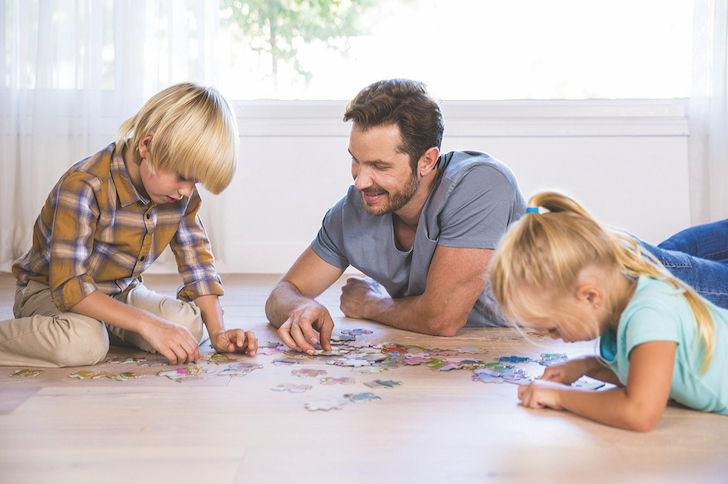Children may be more deeply affected by social distancing than any other group of people. In a matter of weeks, millions of young children and adolescents went from attending school in the classroom to being told they had to work exclusively from home. At the same time, children also were asked to give up their sports teams, clubs, meetings, and play dates. Older children may understand the how and why of social distancing, but no matter their ages, kids may be left emotionally adrift as social distancing guidelines stay in place.
 No one is certain about what the long-term effects of social distancing will be on both children and adults. Amy Learmonth, Ph.D., a developmental psychologist at the Cognition, Memory and Development Lab at William Paterson University in New Jersey, notes that early social development takes place mostly within the family. As children age, their peer group becomes the more important hub of social development. The longer social distancing restrictions are in place, the more these developments may adversely affect youngsters. Parents can take steps to help kids cope during these uncertain times.
No one is certain about what the long-term effects of social distancing will be on both children and adults. Amy Learmonth, Ph.D., a developmental psychologist at the Cognition, Memory and Development Lab at William Paterson University in New Jersey, notes that early social development takes place mostly within the family. As children age, their peer group becomes the more important hub of social development. The longer social distancing restrictions are in place, the more these developments may adversely affect youngsters. Parents can take steps to help kids cope during these uncertain times.
• Set up digital play dates. The connectivity of the internet enables people to keep in touch even if they cannot be together physically. Encourage children to engage their friends via online chats, ideally ones that feature video so they can see and hear their friends. Parents of young children can reach out to one another and establish digital play dates via FaceTime or another virtual meeting app.
• Lighten up on screen time restrictions. Each person has a different way to cope with social distancing and pass the time. Children may spend more time on tablets, watching television or playing video games. For now, parents can be a bit more lenient and understanding about how technology can fill the void created by social distancing.
• Participate in a scavenger hunt. Join or organize a neighborhood scavenger hunt. Walk around the neighborhood looking for school mascot pictures in windows or rainbows on doors, advise the childcare experts at Children’s Hospital of Philadelphia. This activity can maintain a sense of connection with your community.
• Create time for physical activity. Exercise can tame stress, improve mood and be great for the body in myriad ways. Children and teens should exercise each day. Families can exercise together to make physical activity more fun.
• Set new goals. Ask everyone to do their part to complete “to-do” lists or make a set of goals to achieve while social distancing. Checking off items on the list as they’re completed can give everyone a sense of accomplishment.

